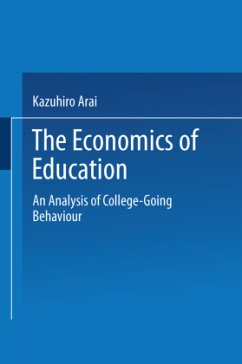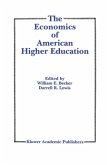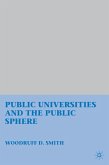The aim of this book is to answer from an economics viewpoint such questions as why some people go to college while others do not, and why the percentages of different types of students going to college have changed so dramatically throughout the world over the past few decades. The information contained is up-to-date, but the contents will be accessible even to those without a major in economics. The author makes many original contributions to the field of economics of education, in particular by giving serious consideration to cases of capital market imperfection. The book is written so that the reader can gain a multi-dimensional and comprehensive understanding of major issues related to college-going behavior. While specialists of this field will find it indispensable, economics students up to postgraduate level can use this volume as a textbook on the economics of education or on applied microeconomics.
Bitte wählen Sie Ihr Anliegen aus.
Rechnungen
Retourenschein anfordern
Bestellstatus
Storno








